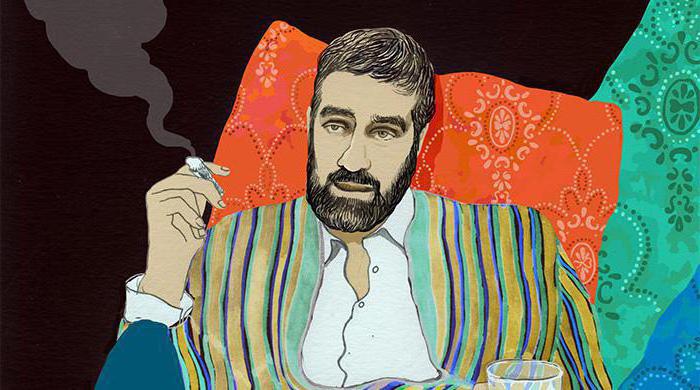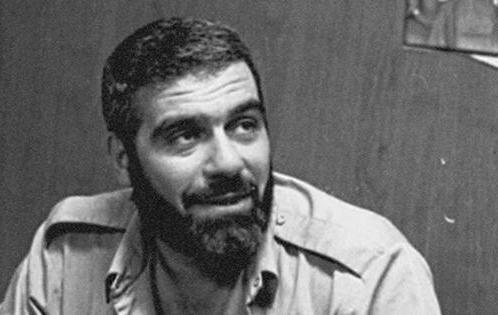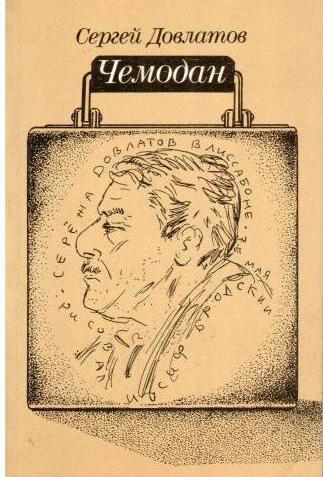Sergei Dovlatov is a Soviet writer who left the USSR in the late seventies. In his works, according to Brodsky, style plays a more important role than the plot. Perhaps that is why the stories and stories of this popular prose writer have spread into quotes. The best books by Sergei Dovlatov have been published abroad. And the point is not that more favorable conditions for creativity were created in the USA. And the fact that in the homeland his works were printed very reluctantly.
Biography
Sergey Dovlatov was born in 1941 in Ufa. His father was a theater director. In Leningrad, the future writer lived from the age of three. After graduation, he entered the philological faculty of Moscow State University, but did not graduate. Dovlatov was expelled from the university for poor performance. After several years of studenthood, a period began in the life of the hero in today's article, which, perhaps, made him a writer. For three years, Dovlatov served in a camp guard in the North. From there he returned with a bunch of manuscripts. Then, for several years, he tried to publish the novel "The Zone. Notes of the Overseer." This book by Sergei Dovlatov is considered by many readers and critics to be the best.

After completing military service, the young writer entered the faculty of journalism. Then he worked in a small-circulation newspaper, in his spare time he wrote small prose stories. In 1972, the journalist left for Estonia, where he worked as a fireman and freelance correspondent for a local newspaper. In the early eighties in New York, the novel Compromise was published. The work tells about the work of Tallinn journalists and is included in the list of the best books by Sergey Dovlatov.
In the seventies it was impossible not only to write works that did not meet the official ideology. It was dangerous to even read such books. Nevertheless, among intellectuals, forbidden literature was actively discussed. The most active individuals reprinted the manuscripts of authors who were in disgrace, risking their own well-being and freedom. Sergei Dovlatov was also a writer of objectionable Soviet censorship. His best books were created in an atmosphere of prohibitions and threats. In Estonia, he wrote the story Five Corners, which was destroyed by KGB officers.

In 1975, Dovlatov left Tallinn, returned to Leningrad and got a job in the editorial office of the magazine "Bonfire". During this period, he actively wrote prose. Not many works accepted literary magazines. For anti-Soviet activities in the mid-seventies, the writer was expelled from the Union of Journalists. Dovlatov never had a steady stable income. Since the books did not print, and he was periodically fired from the editorial office, he often found himself in distress. In the early seventies, the writer worked as a guide for some time in the Pushkin Reserve. And this period of his biography he reflected in prose. In 1983, a foreign publishing house published the novel "The Reserve".
List of famous works
For some, the best book by Sergei Dovlatov is The Zone, for others it is The Preserve. How many people, so many opinions. Based on reader reviews, the list of the best books by Sergei Dovlatov will look like this:
- "Zone".
- "Suitcase".
- "Compromise".
- "Foreigner".
Sergey Dovlatov’s best rated book is the one that tells about his years of work as a prison guard. About her, as well as about his other works, are described in more detail below.
The best book of the writer Sergei Dovlatov
The idea of the story "Zone" began to take shape in the early sixties. At that time, the novice writer was serving in camp huts located in the village of Chinyavoryk. The whole country was read by the works of Solzhenitsyn and Shalamov. The camp theme, it would seem, has exhausted itself. This was one of the reasons why Dovlatov’s book was not accepted by publishers for a long time. Prison memoirs after Solzhenitsyn are no longer of interest to readers - this was the standard response of the publishers. Nevertheless, the story "The Zone" is in some ways unique. In earlier prose writers, the camp is depicted as a victim. Dovlatov’s - from the position of overseer.

Dovlatov treated this story quite carefully, because it was with her that his writing began. In a letter to publishers, he repeatedly emphasized that he was not at all trying to imitate the creators of camp prose. The characters of his work are criminals. The author of "One Day by Ivan Denisovich" spoke mainly about political prisoners. Moreover, Solzhenitsyn described the camp as a hell in which innocent victims ended up. Sergei Dovlatov believed that this "hell is us." That is, in his understanding, the prisoners themselves created unbearable conditions for staying in the camp.
"Compromise"
The book is a collection of short stories. Work on the "Compromise" Dovlatov began in 1973, and completed in 1980. A collection of short stories was first published in the early eighties.
As already mentioned, the author took the plot for these works from his own experience gained while working in the newspaper "Soviet Estonia". In 2015, Stanislav Govorukhin made the film "The End of a Beautiful Era." The film was created based on short stories from the Compromise collection.
"Suitcase"
And this book is a collection of short stories. The main character leaves his homeland, takes only a small suitcase with him to emigration. It contains a shirt, jacket, double-breasted suit, several pairs of cream socks, a winter hat and several other items of clothing. Each of them is associated with certain memories, and each author devotes a separate story.
"Reserve"
Almost all of Dovlatov’s works are narrated in the first person. Many of them are autobiographical. The novel "The Reserve" is no exception. However, there is an opinion that the prototype of the protagonist is Joseph Brodsky. The poet once tried to get a job at the library at the museum dedicated to the work of Pushkin.
"Foreigner"
The story, like most works written in exile in the United States, is devoted to the life of emigrants. The main character is far from politics, grew up in a wealthy Soviet family. Nevertheless, one day she decides to leave the Soviet Union and leaves for the United States.
The style of Dovlatov is characterized by an amazing combination of irony and lyricism. His works are filled with subtle humor and sadness. In order to be convinced of this, it is worth reading one of the works of an outstanding Soviet writer, who reflected in his work the tragedy and romance of an entire generation - a generation of dissidents, emigrants, artists, and unrequited people.